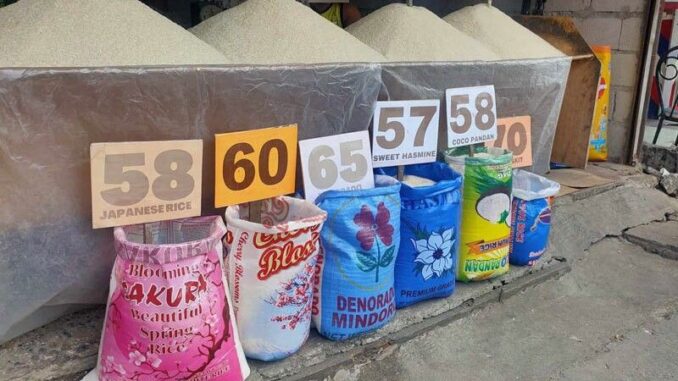
MANILA, Philippines — Prolonging the deadline for the arrival of rice shipments would allow local importers to negotiate better rates for their imports amid threats that their contracts are being canceled due to volatility in prices, resulting in lower landed costs and retail prices.
This, industry sources told The STAR, could generate savings in both the prices of imported rice as well as their freight costs that could translate to lower landed costs of the staple, resulting in cheaper retail price.
Agriculture Secretary Francisco Tiu Laurel Jr. told The STAR that he extended the must ship-out date for imported rice to 60 days from 30 days to allow local importers to “shop around and get better rates” for freight costs.
Tiu Laurel explained that freight companies have increased their rates on local rice importers due to the earlier 30-day deadline for rice imports to arrive in the country.
“The 30-day [deadline] served its purpose before to make clear how much volume of rice would enter last November and December,” he said.
The must ship-out date stipulates the deadline that an allowed rice import must enter the country beginning on the day that the shipment’s sanitary and phytosanitary import clearance (SPSIC) was issued.
Initially, the must ship-out date for rice imports was 60 days to 90 days but was cut short to 30 days by Tiu Laurel last December to force importers to bring in their applied import volume.
Last week, Tiu Laurel issued a memorandum circular reverting the must ship-out date to 60 days citing the need to protect local farmers and the need to ensure food security.
Industry sources told The STAR that rice traders and importers have appealed to the Bureau of Plant Industry (BPI), which issues the SPSIC, to extend the must ship-out deadline after they faced cancellation of contracts by Vietnamese exporters, who are seeking better prices for their stocks.
Vietnam accounts for at least three-fourths of the country’s annual rice imports.
The extension of the must ship-out date would provide rice importers with the “flexibility” to look for other suppliers should their contracts be cancelled within the 60-day deadline, said Danilo Fausto, president of the Philippine Chamber of Agriculture and Food Inc.
“If it is kept at 30-day (deadline) then the (importers) will not have that flexibility to look for other suppliers which could cause a problem for our supply – our supply will be jeopardized because we really need the imports to fill in the gap in local supply,” he said.
Fausto said some Vietnamese rice exporters are taking advantage of the government’s decision to lower rice tariffs to 15 percent by hiking their export prices.
“I do not think it is the world market causing the increase in export prices but it is more on a profit motive,” he said.
The Philippine Rice Industry Stakeholders Movement co-founder Orly Manuntag earlier said rice export prices in the neighboring Southeast Asian country have increased by $60 to $70 per metric ton, forcing Vietnamese suppliers to call off contracts with Philippine importers.
International reports indicate that Vietnamese rice export prices have steadily increased in recent months on the back of foreseen higher global demand for the grain, especially in neighboring countries like the Philippines and Indonesia.
The price uptick happened just weeks after the lowering of the country’s rice tariffs from 35 percent to 15 percent took effect on July 5, industry players said.
The rise in export prices would reduce whatever savings would be generated and passed on to consumers due to the tariff reduction, they added.


Be the first to comment